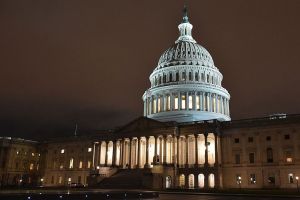This paper provides recommendations for corporate engagement with public policy issues for societal objectives.
Introduction
Business is “expected to lead” and be a “trusted partner for change,” based on a global survey.
Key Findings
In a 2018 article entitled, "The Corporate Soul," The New York Times reported: "Business leaders today are reshaping the internet, reimagining health care, upending transportation and more. But being a chief executive is no longer just about running a company. It means taking political stands on everything from immigration to gun rights. It means weighing in on tariffs and taxes—all while balancing short-term profits with long-term goals, dealing with activist investors and attracting talented employees.” A week earlier the Times had examined in, "Our Newest Culture Warriors: Activist CEOs":
A "recent phenomenon in which corporations and their chief executives pick a side in the culture war."
The article discussed how a significant number of corporations have been distancing themselves from the National Rifle Association following the Parkland massacre, which had been preceded by the Las Vegas mass killing. Business leaders publicly denounced the US government's policy of separating families at the US-Mexican border, while several major airlines requested that the government not use their flights to transport migrant children forcibly separated from their parents. Some companies have taken the lead to address governance failures by advocating for tax increases on large businesses in order to generate resources to systemically tackle the homelessness crisis in their communities or correcting market failures by taking a pivotal role in ensuring the development of an affordable housing option, which is historically a role of the federal government. This phenomenon has morphed into a broader trend that has attracted the attention not only of mainstream media, but also academic circles and business experts. The Harvard Business Review featured a foundational article on "The New CEO Activists" and their roles in polarized political times. CEOs and their corporations have been speaking out constructively on such issues as migration and the global refugee crisis, LGBTI rights, equality among citizens, gender bias, racism, sexual harassment, police brutality, freedom of expression and terrorism, climate change, gun violence, and human rights in a global economy. These are areas of increasing governance gaps both domestically and internationally, a development that becomes even more pronounced in light of the current political landscape globally. Forbes identified main Corporate Social Responsibility (CSR) trends for 2017 and 2018, which include "corporations […] stepping up as advocates and problem-solvers" and more companies "bringing CSR into the C-suite" as a matter of corporate leadership. The 2019 Edelman trust survey found that a record high of some 71 percent of participants have the expectation that CEOs be leaders of change by speaking up and "respond[ing] to challenging times," including "industry issues, political events, national crisis, and employee-driven issues."
During April and May 2018, the Leadership Initiative on Corporate Engagement with Public Policy ("CEPP") launched a frank and open dialogue in closed-door settings with corporate officials and stakeholder representatives with the goal of developing recommendations for corporate engagement with public policy issues for societal objectives. By "public policy," we mean major issues of societal importance that (1) typically require governmental action, particularly in the fields of human rights, environmental protection, labor rights, health care, and domestic and international security, and (2) are not necessarily directly linked to a company’s business operations, but are "larger than self" issues. CEPP is not concerned with traditional lobbying efforts aimed at reactively supporting or opposing legislation or regulatory reform for the sake of maximizing corporate profit; rather, the issue is how corporations, individually or jointly, seek to steer public policy in directions that address constructively and progressively the major societal issues of our day and promote universal values, which can be considered the bedrock of democracy, a free society, and human dignity. CEPP does not address political spending by companies to influence elections, which poses a risk to their reputations and brands, especially in today’s polarized political environment, a recent report by the Center for Political Accountability shows.
The initial objective has been to draft non-binding principled recommendations, building upon Principles 11 and 19 of the UN Guiding Principles on Business and Human Rights, to assist corporate officials in their decisions to engage, publicly or privately, in response to governance gaps and to help advance progressive societal objectives. While the UN Guiding Principles focus on the company’s irrevocable baseline responsibility to respect human rights ("do no harm"), CEPP aims to examine the additional spheres of proactive corporate engagement to promote fundamental values and human rights in a free society as an extension of a company’s responsibility to respect under Guiding Principle 11. Throughout this process, the firm underlying premise is that "a company cannot compensate for human rights harm by performing good deeds elsewhere." [John Ruggie, 2008] The UN Guiding Principles speak to the use of leverage by business enterprises for the advancement of human rights (Principle 19), which offers an important normative starting point for corporate engagement with public policy and yet a more nuanced and comprehensive examination of this new development is merited. In a second phase, the Leadership Initiative will engage in further consultations and research to prepare more granular operational guidance for companies to use for internal decision-making processes that pertain to their engagement with public policy. This will address the need expressed by corporate participants for guidance on how to operationalize the recommendations on CEPP at the firm-level.


